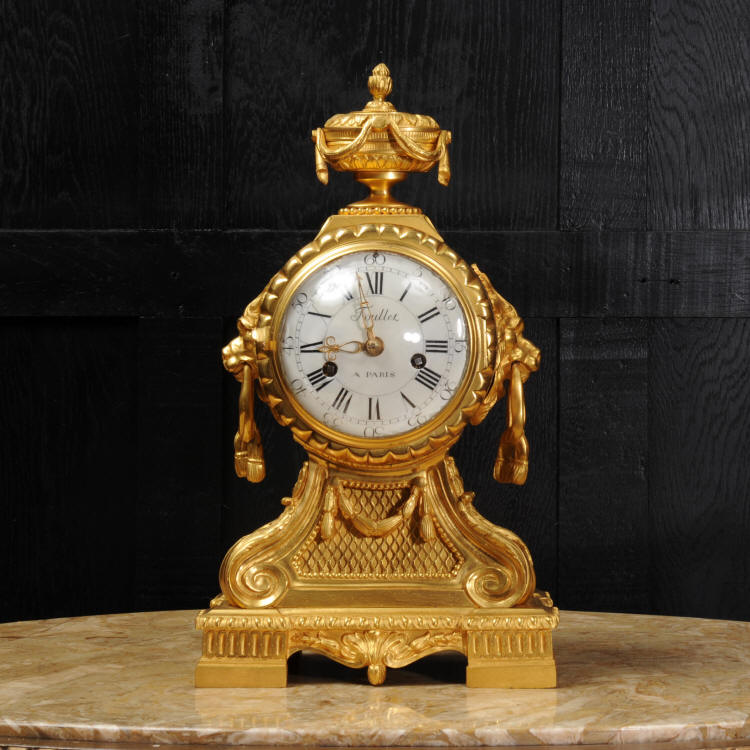The dial is signed Foullet A Paris, it is porcelain enamel on copper with the original beautifully fretted gilded hands. The convex glass is hand blown and has been refitted at some time. The French movement is unmarked and is of high quality. It has a verge escapement and countwheel strike. It is in excellent clean and running condition having been fully overhauled by our clockmaker. Pendulum is a replacement. It runs for 8 days and strikes the hours and halves on a bell. Click the video clip below to hear the bell and watch the clock running. Antoine Foullet (1710 - 1775) was a well known case maker, a cabinet maker who specialised in clockcases. He became master in 1749 and worked from his workshop on the rue du Faubourg-Saint-Antoine, Paris. Following his death in 1775, an inventory drawn up lists twenty clocks cases, some made entirely of bronze. Foullet's work is represented in the finest collections including The J Paul Getty Museum. Foullet sourced movements from several clockmakers including Louis Musson, Lapina and Swiss maker Abraham Louis-Humbert Droz. Although unmarked, the movement of this clock is of very good quality and it is not unusual for movements of this period to be unmarked. A clock of similar design can be seen on page 239 of Les Plus Belles Pendules Francaises by Giacomo and Aurelie Wannenes 2013. Reference: Tardy, Dictionnaire Des Horlogers Francais. European Clocks in the J. Paul Getty Museum By Gillian Wilson, David Harris Cohen, Jean Nérée Ronfort, Jean-Dominique Augarde, Peter Friess.
Condition of the case is
very good, the gilding is beautifully clean and bright with some wear and
discolouration. The dial is also in very good
condition just some tiny nibbles to the winding
holes. The hand blown glass has numerous imperfections as one would
expected and also some chips to the edges. Complete with pendulum, bell and a suitable key. Full setting up instructions supplied if required.
About us - All of our clocks are original antiques, we source most of our clocks in France, Belgium, the Netherlands and the UK. We prefer to buy our clocks in original 'dirty' condition. We then clean the cases using a technique we have developed over many years. We employ two qualified clockmakers who overhaul the movements. Movements are thoroughly tested until we are satisfied that they will run trouble free. |
||||||||||||||||
|
Click the movie player below to see the this actual clock
run -
|


















Customer satisfaction is always guaranteed at Dragon Antiques!





